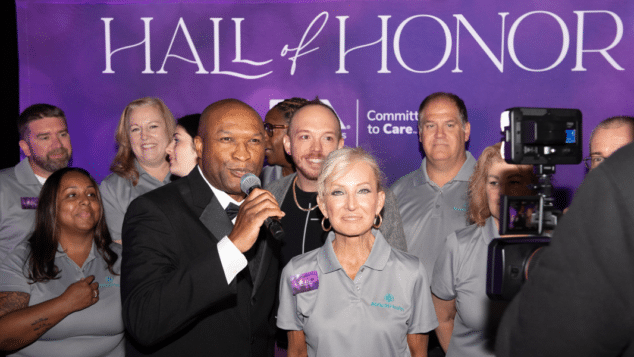Recent Study Shows Conferences Contribute to Long-Term Sustainability for Host Cities

We know the general benefits of conferences for host cities and, usually, we think in terms of positive economic impact.
However, there is limited research delineating the short-term and long-term benefits of conferences for host cities. That means there’s key information missing that can help justify, retain, and attract conferences as well as what associations can do to maximize the positive impacts, both short-term and long-term, of events.
A recent study, the Conference Legacy Impact Study, conducted by Capilano University in partnership with Destination Vancouver is a big step toward providing those insights. The study reports 47 positive impacts that contribute to long-term legacy impacts. The framework for these legacy impacts were defined using the United Nations (UN) Sustainable Development Goals, allowing the report to identify legacy benefits in a way that could be applied to other destinations beyond Vancouver.
If you’re interested in a detailed analysis of all 47 positive impacts and also the methodology of the study, we hope you’ll read the complete Conference Legacy Impact Study at the end of this article.
The Study’s Purpose
The purpose of this study was to:
- Identify the short-term outcomes and the long-term legacies of conferences in Vancouver.
- Compare the outcomes of returning and globally rotating conferences in Vancouver.
- Develop a methodological approach to guide similar studies in Vancouver and other destinations.
- Identify general outcomes for destinations and associations to empower them to undertake studies and host impactful conferences.
The study was done from March to October 2022 and data was collected from five in-person conferences hosted at the Vancouver Convention Centre, representing several of Vancouver’s key industries and included both returning and globally rotating conferences.
The City of Vancouver
Tucked in on the west coast of British Columbia, Vancouver is a bustling city surrounded by, and intertwined with, nature. With a metro population of 2.463 million, Vancouver is the third largest city in Canada and is a global destination for conferences and meeting events.
The United Nations Sustainable Development Goals
The study uses the UN Sustainable Development Goals (UNSDGs) as the framework for legacy, or long-term, positive impacts on host cities. There are 17 total UNSDGs and they are the heart of a blueprint for peace and prosperity for people and the planet, now and into the future.
The Results
The study was extremely encouraging and found that there are 47 short-term outcomes that positively impact not only the host city, but the region, the country and the world. The positive outcomes are also extremely diverse. Though we usually think of the positive economic impact of conferences, the study shows that positive impacts have the following benefits:
- Economic
- Environmental
- Political
- Social
- Sectoral benefits
Each of the 47 short-term outcomes relate to and, over time, will contribute to the 17 UNSGAs that offer long-term legacy benefits.
In general, the results show that in-person conferences, both returning and globally rotating, are highly valuable to both attendees and the destination cities that host them.
Comparing Returning and Globally Rotating Conferences
The study included both returning and globally rotating conferences and it’s important to note all conference attendees intend to re-visit Vancouver as tourists. There were, however, some key differences between the two types of conferences.
Globally rotating conference attendees are statistically more likely to:
- Undertake research
- Visit more local businesses
- Extend stay in the destination
Returning conference attendees are statistically more likely to:
- Work with Indigenous populations
- Investment in new projects
- Develop stronger outcomes as the impacts strengthen over time
- Key Short-Term Outcomes that Contribute to Long-Term Legacy Benefits
Here we will focus on six of the 47 short-term positive outcomes that are key for Vancouver and the legacy benefits (UNSGAs) they are associated with. The numbering below corresponds with the full report.
1. No Poverty
Both local and international job creation by attendees are a direct economic benefit.
At the Pediatric Orthopedic Society of North America Annual Meeting, 6 percent of attendees created new jobs.
12. Responsible Consumption and Production
Here the study looked for the number of attendees who were found to participate in green projects, challenges, or initiatives.
At the GLOBE Forum, 33 percent of attendees took part in these types of green activities.
15. Life on Land
The key to this legacy benefit is the proportion of attendees that are from the mining and forestry industries.
At the Canadian Institute of Mining and Metallurgy Annual Convention, 48 percent of attendees represented the mining and forestry sectors.
13. Climate Action
For Climate Action, the study looked at the number of attendees developing new public legislation, regulations, or governing plans.
At the World Lottery Summit, 36 percent of attendees implemented new green projects, challenges or initiatives, while 40 percent of attendees developed new sustainable action plans or strategies.
5. Gender Equality
The study looked at the total number of new opportunities created for female professionals.
At the International Spinal Cord Society Annual Scientific Meeting, 24 percent of attendees created new opportunities for female professionals.
5. Peace, Justice and Strong Institutions
The study measured the number of attendees who made connections with public sector representatives.
At the GLOBE Forum, 29 percent of attendees made connections with public representatives.
Key Learnings for Destinations
Given the outcomes that were measured and the relationships between outcomes, the study gives insight into the true value of conferences and offers suggestions for destinations to reap the most benefits from each and every conference. Let’s look at some of these values and suggestions.
For Tourist Activity
To maximize tourist activity during and after conferences (as attendees showed a high desire to return to Vancouver as a tourist), destinations should:
- Facilitate and encourage conference attendees to visit local businesses.
- Support and engage with associations and conference organizers to provide networking opportunities.
- Remember that the more local businesses that attendees visit and the more contacts that are made creates a higher intention to revisit as a tourist.
The Value of Conferences
- Each conference results in many legacies and outcomes. Even one conference will have positive legacy outcomes.
- Results show more than half of the outcomes identified were non-economic (i.e., environmental, political, sectoral, and social).
- Identifying and measuring the legacies and outcomes of conferences will result in exposing this wider range of impacts.
Keys to Maximize Positive Impacts
- Build legacy and outcome measurement into conference proposals and bids.
- Provide intangible knowledge to help identify and measure legacies and outcomes.
- Provide tangible resources to help identify and measure legacies and outcomes.
- Be flexible in choosing data collection methods for each conference legacy and outcome.
- Engage different voices in identifying and measuring legacies and outcomes.
Read the Full Study
Find the complete Conference Legacy Impact Study to learn more about the methodology and the 47 positive impacts, plus insights, metrics and learnings on the Destination Vancouver website.
This article is powered by Excelerate Partner: Destination Vancouver
Tags
Related Articles
Double Your Footprint: Enhancing Conferences with a Hybrid Event Workflow
By combining on-site engagement with a digital experience, hybrid events can attract diverse audiences, boost...
The Emergency Nurses Association Utilizes Design Thinking to Reimagine its Awards Ceremony
In a prime example of intrapreneurship, the ENA utilized design thinking to innovate within the...
Top Ten Skills Needed to be a Meeting Planner of the Future
Now, more than ever, meeting planners need to be flexible and savvy. Read on for...





